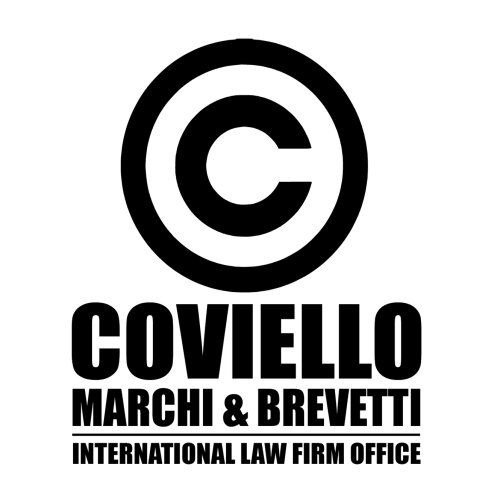Best Art & Cultural Property Law Lawyers in Benevento
Share your needs with us, get contacted by law firms.
Free. Takes 2 min.
List of the best lawyers in Benevento, Italy
About Art & Cultural Property Law in Benevento, Italy
Art & Cultural Property Law in Benevento, Italy, encompasses the legal frameworks regulating the creation, ownership, protection, transfer, and export of artworks and cultural heritage materials. Benevento is a historic city located in the Campania region, known for its wealth of archaeological and artistic heritage, including Roman ruins, medieval churches, and museums. The legal system aims to safeguard both private collections and public cultural assets, ensuring their preservation for future generations and regulating the complex relationships between owners, buyers, institutions, and the state.
Why You May Need a Lawyer
Many situations can arise where individuals or organizations in Benevento may require legal assistance relating to art and cultural property. Some common scenarios include:
- Acquisition or sale of artwork or cultural property, ensuring provenance, legality, and compliance with export/import regulations
- Inheritance of cultural assets, which may involve complex succession laws or state claims on heritage items
- Disputes over ownership, authenticity, or restitution, particularly if works were lost, stolen, or looted during historical events
- Restoration, loan, or temporary exhibitions of artworks, requiring contracts and insurance guidance
- Interacting with public authorities regarding permits, notifications, or compliance checks for protected objects or monuments
- Export controls and customs challenges for moving art out of or into Italy
- Dealing with cultural property found during construction or renovation, as Italian law vests ownership in the state under certain circumstances
- Advice on tax incentives or deductions for cultural donations, sponsorship, or heritage activities
Local Laws Overview
The regulation of art and cultural property in Benevento falls primarily under Italian national law but is actively enforced at the local level. The central legal instrument is the Codice dei Beni Culturali e del Paesaggio (Code of Cultural and Landscape Heritage), which sets out the definition, protection, and management of cultural property. Key aspects include:
- Definition of Cultural Value: Objects deemed of significant artistic, historical, archaeological, or ethno-anthropological interest are subject to specific controls.
- Ownership and State Claims: The state, regions, and local entities can claim ownership or priority rights over newly discovered objects or specific classes of art.
- Export Restrictions: There are stringent restrictions on the export of cultural heritage over a certain age and value, requiring permits from the Soprintendenza.
- Protection of Sites: Monuments and archaeological sites in Benevento are overseen by the Soprintendenza Archeologia, Belle Arti e Paesaggio, which manages interventions, restoration, and conservation.
- Legal Transfers: Sale or donation of protected property often require notification or permission from authorities.
- Punitive Measures: Unlawful export, unauthorized excavation, illicit sale, or damage to cultural heritage can result in hefty fines and criminal sanctions.
- Local Enforcement: In addition to state oversight, the Municipality of Benevento and regional authorities may introduce further regulations or enforcement protocols adapted to local heritage needs.
Frequently Asked Questions
What is considered a "cultural property" in Benevento?
Under Italian law, cultural property includes objects of artistic, historical, archaeological, and anthropological value, such as artworks, manuscripts, historic buildings, and archaeological finds. In Benevento, this includes a multitude of items and structures given the area's rich heritage.
Can I export an artwork purchased in Benevento abroad?
Exporting artworks or antiquities from Italy is strictly regulated. You must apply for an export license, and items over a certain age or value may be denied export if considered of significant cultural value.
Do I need to notify authorities if I inherit a valuable artwork?
Yes, if the item is classified as cultural property, the inheritance must be communicated to the relevant authorities. The state may have rights to acquire or place restrictions on the work.
What should I do if I discover archaeological remains during renovation or construction?
It is mandatory to stop work immediately and notify the Soprintendenza Archeologia, Belle Arti e Paesaggio. Failure to do so can result in severe penalties, and any discovered items may belong to the state.
How can I check if a work of art is protected or registered?
You can consult the Soprintendenza or relevant local/regional cultural authorities. Registered items often appear in public inventories or heritage registries.
What are the penalties for illegally trading or exporting cultural property?
Penalties can include confiscation of the item, substantial fines, and even imprisonment, depending on the severity and intent of the violation.
How does the law protect modern and contemporary art?
While most protections focus on older works, works by living artists or contemporary art may become protected if deemed of exceptional significance, typically 70 years after creation or the artist’s death.
Are there any tax advantages for donating art to a museum or public institution?
Yes, Italian law provides for tax benefits or deductions for donations, sponsorships, or cultural patronage, subject to meeting specific legal criteria and documentation requirements.
Who should I contact if I have a legal dispute over ownership or authenticity?
You should consult a specialist lawyer in art and cultural property law. Additionally, the Soprintendenza may mediate or provide guidance in certain disputes.
Can the Municipality of Benevento introduce additional protections or regulations?
Yes, local authorities have some discretion to introduce or enforce additional heritage regulations, particularly for urban planning, restoration, tourism, or local heritage management.
Additional Resources
- Soprintendenza Archeologia, Belle Arti e Paesaggio per le province di Caserta e Benevento: Local agency for heritage protection, permits, and conservation oversight.
- Ministero della Cultura (MiC): The national Ministry for Culture oversees cultural heritage policy and export controls.
- Comune di Benevento - Ufficio Cultura: Municipal department handling local cultural initiatives, events, and information.
- Professional Associations: Organizations such as the Associazione Italiana Avvocati per la Cultura (Italian Association of Lawyers for Culture) can recommend qualified legal professionals.
- Legal clinics, universities, and museums in Campania: May offer informational events, seminars, or public guidance on heritage law topics.
Next Steps
If you need legal assistance with art or cultural property issues in Benevento, follow these steps:
- Clearly identify your issue or question and gather all relevant documentation (ownership records, receipts, photographs, correspondence).
- Contact the appropriate public authority (such as the Soprintendenza) if your question involves permits, registration, or notification requirements.
- Seek out a qualified lawyer with experience in art and cultural property law. Professional associations or local bar councils can assist in your search.
- Prepare for your consultation with a summary of your situation and any questions you may have.
- Stay informed about your rights and responsibilities: consult official resources, attend informational events, or request guidance from museums or cultural associations in Benevento.
- If needed, keep communication records with authorities, experts, and professionals for future reference or dispute resolution.
Navigating art and cultural property law is complex, especially in a heritage-rich area like Benevento. Engaging the right experts and authorities early will help protect your interests and ensure compliance with all applicable laws.
Lawzana helps you find the best lawyers and law firms in Benevento through a curated and pre-screened list of qualified legal professionals. Our platform offers rankings and detailed profiles of attorneys and law firms, allowing you to compare based on practice areas, including Art & Cultural Property Law, experience, and client feedback.
Each profile includes a description of the firm's areas of practice, client reviews, team members and partners, year of establishment, spoken languages, office locations, contact information, social media presence, and any published articles or resources. Most firms on our platform speak English and are experienced in both local and international legal matters.
Get a quote from top-rated law firms in Benevento, Italy — quickly, securely, and without unnecessary hassle.
Disclaimer:
The information provided on this page is for general informational purposes only and does not constitute legal advice. While we strive to ensure the accuracy and relevance of the content, legal information may change over time, and interpretations of the law can vary. You should always consult with a qualified legal professional for advice specific to your situation.
We disclaim all liability for actions taken or not taken based on the content of this page. If you believe any information is incorrect or outdated, please contact us, and we will review and update it where appropriate.









